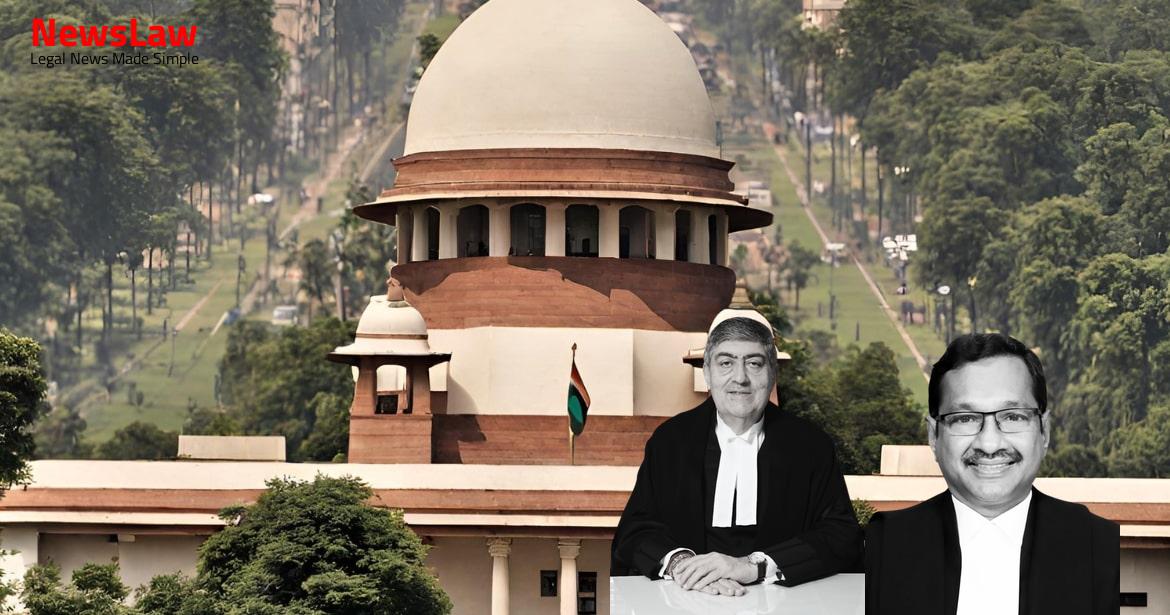In a significant legal development, the Supreme Court of India has issued a landmark ruling on the imposition of service tax on the sale of lottery tickets. The case involves a dispute between Tashi Delek Gaming Sol. Pvt. Ltd. and the Union of India over the applicability of service tax on the marketing and promotion of lotteries. The judgement sheds light on the scope and ambit of relevant sections under the Finance Act, 1994, in relation to the activities of the parties involved. Stay informed as we delve deeper into this impactful decision.
Facts
- The appellant was appointed as the exclusive statutory marketing agent by the State of Sikkim for the sale of online lottery tickets.
- The appellant contended that the sale of lottery tickets is an outright purchase and does not involve any service in terms of promotion or marketing.
- The appellant made a profit from the difference between the amount received from retailers and the amount paid to the State Government or registered promoters for the lottery tickets.
- The sale of lotteries in Kerala was regulated by specific rules and acts.
- The appellants were directed to obtain registration and pay service tax under ‘business auxiliary service’ as per the provisions of the Finance Act, 1994.
- Notices and searches were conducted by the Central Excise department regarding the lottery purchases made by the appellant.
- The appellant’s service was deemed to fall under the category of ‘business auxiliary service’ for tax purposes as per the Finance Act, 2008.
- The appellant purchased lottery tickets at a price lower than the maximum retail price and sold them to distributors at a margin.
Also Read: Mistaken Bid Rectification Case: Balancing Equity in Tender Matters
Issue
- Whether the activity of the appellants would attract service tax under Section 65(19)(ii) read with Section 65(105)(zzb) of the Finance Act, 1994
- Determination of scope and ambit of the relevant sections in relation to the appellants’ activities
- Examining if the appellants are entitled to any reliefs in case the service tax is not applicable to them
Also Read: Stamping Standards Upheld: B. Ramesh Hegde v. Praveen Shetty
Arguments
- The appellant argued that the profit made from the resale of tickets did not constitute a taxable service.
- The appellant approached the Kerala High Court challenging the constitutionality of the Explanation added to Section 65(19)(ii) of the Finance Act, 1994.
- The appellant contested all consequential steps taken in pursuance of the Explanation.
- Union of India argued that Tashi Delek Gaming Sol. Pvt. Ltd. provided a service to the State by marketing and promoting lotteries.
- Union of India referenced the Agreement between Tashi Delek Gaming Sol. Pvt. Ltd. and the State of Sikkim to support their argument.
- Tashi Delek Gaming Sol. Pvt. Ltd. was not solely selling lottery tickets but also involved in marketing and promoting lotteries as a service.
- Union of India contended that the Explanation introduced in 2008 presented a new concept justifying the imposition of service tax.
- The High Court of Kerala upheld the imposition of service tax on Tashi Delek Gaming Sol. Pvt. Ltd.’s business activities.
Also Read: Judgment Summary: Balancing Equity in Commercial Contracts – Original Name v. State
Analysis
- The definition of ‘goods’ in clause (7) of Section 2 of Sale of Goods Act, 1930, is expressly incorporated in clause (50) of Section 65 of the Act, which expressly excludes actionable claims.
- The Explanation included in the Act cannot override the main text of the provision as it conflicts with the main provision defining business auxiliary service.
- The Finance Act, 1994 is related to Entry 97 of List I of the Seventh Schedule of the Constitution.
- Lottery tickets, being actionable claims and not goods, fall outside the scope and ambit of the Finance Act, 1994.
- The conduct of a lottery is a revenue-generating activity by a State and not a service being rendered.
- The relationship between the State and the appellants is on a principal-to-principal basis due to the sale of lottery tickets.
- The explanation inserted in the Act cannot make an activity a taxable service.
- Service tax could not have been levied on the promotion or marketing of sale of lottery tickets as they are actionable claims and not goods.
- The definition of ‘goods’ under the Sale of Goods Act expressly excludes actionable claims and money.
- On purchasing a lottery ticket, the purchaser acquires a conditional interest in the prize money.
- The Finance Act, 1994 was legislated by the Parliament in accordance with Article 248 of the Constitution of India, giving exclusive power to make laws on matters not mentioned in the Concurrent List or State List.
- Service tax is levied on taxable services as per Section 66 of the Finance Act, 1994, at a rate of twelve percent based on the value of taxable services.
- The definition of goods in Section 65(50) refers to the Sale of Goods Act, 1930, where goods are defined as movable property excluding actionable claims and money.
- The Constitution Bench in the case of Sunrise Associates categorized lottery tickets as actionable claims, falling under the definition of goods.
- Inputs for the client include goods or services intended for their use, production or processing of goods, provision of services, and incidental or auxiliary services.
- The service tax does not apply to activities amounting to the manufacture of excisable goods.
- Parliament has exclusive power to legislate on matters in List I (Union List), while both Parliament and State Legislatures can make laws on matters in List III (Concurrent List).
- State Legislatures have exclusive power to make laws on matters in List II (State List) for their respective states.
- Parliament can make laws for territories not included in a State, regardless of the subject matter.
- A lottery ticket is a contract between the vendor and the purchaser, involving the transfer of the right to claim a prize based on chance.
- The sale of a lottery ticket includes three key elements: a prize, chance, and consideration.
- The decision in H. Anraj incorrectly classified the sale of a lottery ticket as a sale of goods.
- A lottery ticket has no intrinsic value but represents a conditional benefit of winning a prize greater than the price paid for the ticket.
- An actionable claim includes the right to recover insurance money or claim benefits under a contract.
- The sale of a lottery ticket is not a sale of goods but a transfer of an actionable claim representing a chance or benefit.
- A ticket is defined as a printed card or piece of paper granting specific rights, such as attendance at an event or claiming a benefit.
- The essence of a lottery is the purchase of a chance represented by the ticket, not the token itself.
- The purchase of a railway ticket, a claim for rent arrears, or a credit in a provident fund account are all examples of actionable claims.
- Overall, the sale of a lottery ticket equates to the transfer of an actionable claim and is essentially a contract of carriage.
- The sale of lottery tickets by the State is a privileged activity, not a service
- Lottery tickets are considered actionable claims
- The High Courts have overlooked the privileged status of lottery ticket sales
- The appeals by the appellants are allowed, setting aside the judgments of the High Courts of Sikkim and Kerala
Decision
- The appeals have been allowed as per the mandate of Article 265 of the Constitution of India.
- Consequential reliefs have been granted to the appellants.
- Any representations for refund of paid amounts will be considered promptly by the respective departments of the respondents.
- No costs have been awarded in these matters.
- Justice B.V. Nagarathna delivered the judgement.
Case Title: K. ARUMUGAM ETC. ETC. Vs. UNION OF INDIA AND ORS. ETC. (2024 INSC 630)
Case Number: C.A. No.-002842-002848 – 2012



